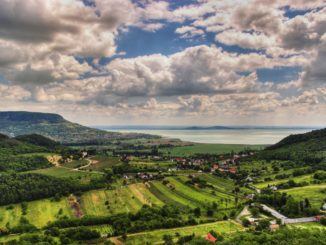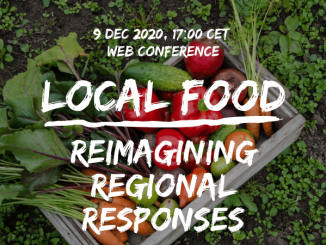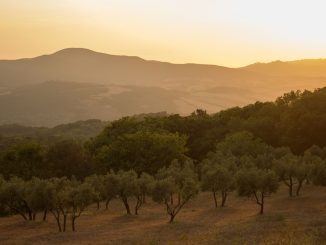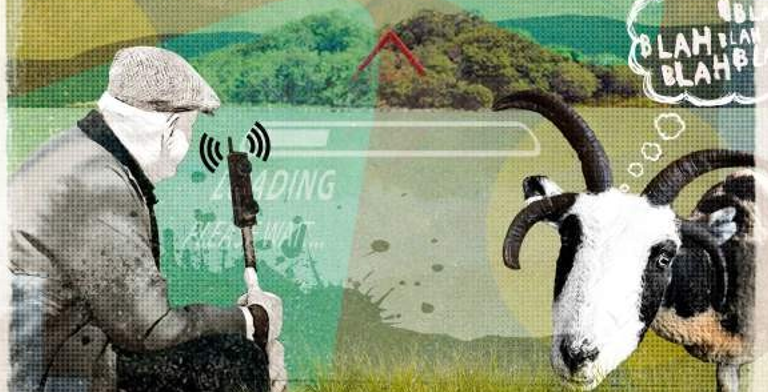
Here we reproduce with permission the opening section of a report Remote Control and Peasant Intelligence – on automating decisions, suppressing knowledges and transforming ways of knowing. This report takes a critical perspective on new developments in the farming sphere. It focuses on the impact on peasant farming of digitisation, data gathering and management, technologisation, automation, approaches to regulation and corporate control. It also puts forward a food sovereignty and peasant agroecology perspective on digital technologies. Remote Control and Peasant Intelligence by Friends of the Earth Europe, FIAN International and the Centre for Agroecology Water and Resilience at Coventry University, is authored by Mute Schimpf, Philip Seufert and Barbara Van Dyck. Imagery by Kiko Romero and Maria Romero Blasco.
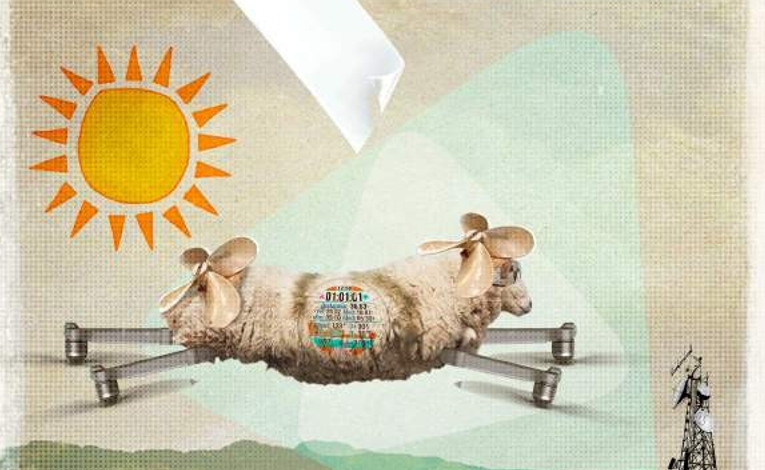
Digital technology is often seen as a silver bullet. Presented as a necessary tool for innovation and tackling multiple global challenges, the truth is far more complex. Promoters of new digital technologies sometimes use this narrative of being indispensable in order to propel corporate and political agendas and consolidate economic and political power. Technologies are not mute objects. Their development, sale and use are inextricably tied up with economic and political interests, cultural meaning, different knowledges and human relationships.
We now see this playing out in agriculture as biodigital technology entrench themselves as an essential resource for farmers in Europe (and elsewhere) and shape key decisions over farming. In the process, the truly necessary things may be lost: peasant autonomy and the valuable knowledges and ways of knowing in peasant farming and agroecology risk being erased in favour of simplistic data-driven processes. In this briefing, we examine how Big Tech is making its footholds in agriculture and the friction of new digital technologies with peasant autonomy and agroecological practices in Europe.
Big Tech has officially entered agriculture. Powerful agribusiness and Big Tech companies are working together and the use of big data and biodigital technology in agriculture is on the rise, in Europe and worldwide.
From the use of so-called Artificial Intelligence (AI) to Automated Decision Making (ADM), policy makers, corporate interests and some researchers claim that the digitalisation of agriculture is necessary to make farming more productive, efficient, and sustainable.
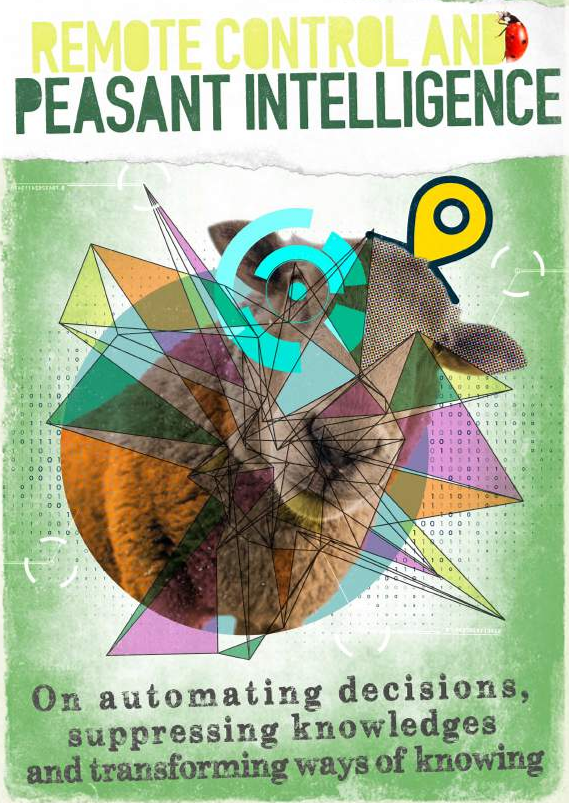
Digitalisation is already being used and discussed in policies for sustainability and climate action. For example, it is used to tie measures for climate change mitigation and biodiversity conservation to financial market mechanisms like carbon credits and offsetting.
However, in agriculture, the promoters of digitalisation may use this transformation to further undermine food sovereignty and peasant agroecology
The digitalisation of agriculture is, among other things, a mechanism for extensive data extraction. Digital data is an increasingly important economic resource and source of corporate profit. Data and the infrastructure needed to collect, store, process, analyse, and use it, have become important means of production and extraction of rents, including in agriculture. Often unknowingly, through using new agriculture technology, peasant farmers and other food producers become data providers. Hence, they unwittingly contribute to their own dispossession.
Peasant farmers are incentivised to provide data through rewards, namely the promise of supposedly handy tools and useful information (e.g. milking robots, information about soil fertility, tracking of movements and health indicators of farm animals) and economic advantages, including price guarantees and new sources of income.
Expanding Control
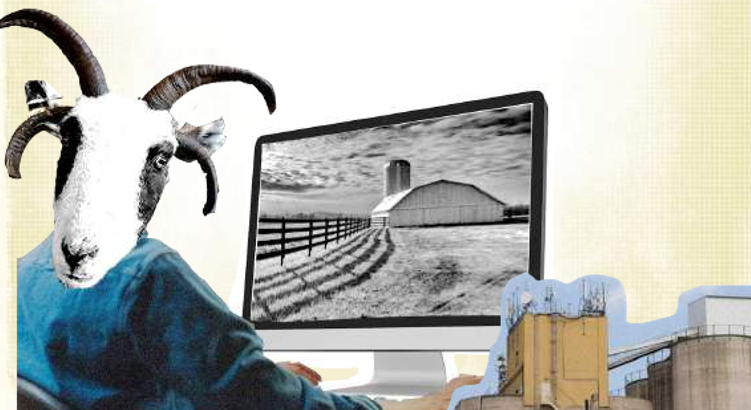
While agribusiness and tech corporations already have more direct control over industrialised agriculture, now they are trying to expand their control over small and medium scale farming. Accumulating huge amounts of digital data allows agribusiness and tech corporations to better consolidate control over food production and food systems.
Currently in Europe, use of digital tools in farming differs widely between sectors and countries. But globally, we see a trend of a few large technology corporations, that are either North American or Chinese, in a fierce battle to integrate peasant farmers in the global economy. The digitalisation of agriculture is part of a process where a hierarchy is created “between economies that contribute data and economies that create value-added products out of this data”. Global South countries, such as India and Kenya seem to be stuck at the lower end of these value chains, further contributing to unequal distribution of wealth.
Data-driven and automated technologies are promoted as a means to make agriculture more predictable, controllable and, therefore, supposedly more productive and efficient. But their use often requires industrial farming landscapes suitable for these technologies and associated technology packages like chemical fertilisers, pesticides, and industrial or GMO seeds. Increasingly automated systems that use so- called AI are a case in point: today, big farms with industrialised farming models are much more likely to use digital devices and platforms. Computerising and controlling peasant farms and their complex ecological relations is much more difficult.
Consequently, the digital devices, data platforms and models are designed for farming models operating under set standards, and the prescriptions generated by AI algorithms are biased towards those same models.
Expanding control over agriculture and food systems through data driven technologies is part of a bigger global picture. As capitalism is faced with multiple crises, corporations and investors rush to restructure economic activity to continue to extract profits.
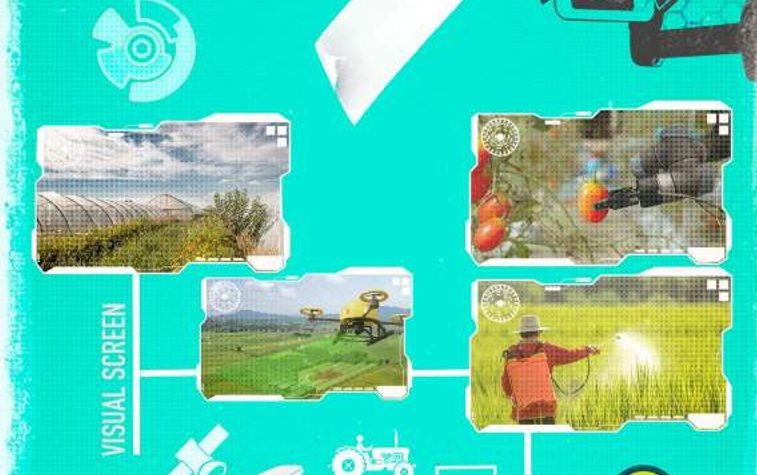
Digitalisation is one strategy applied to do this. As growth rates in agricultural productivity decline, controlling the digital sphere has become critically important for generating shareholder profits.
Digitalisation also deepens new conceptions of ownership. Firstly, a substantial (and increasing) part of the rents extracted by transnational agribusiness companies relies on patents and licensing agreements for the use of data or procedures, rather than selling physical resources such as seeds.
Secondly, the contracts that many farms have to sign when buying agricultural machinery often include provisions allowing only spare parts and maintenance facilities from the machinery producer. On top of this, the digital devices running the machinery can be controlled from a distance, raising the question of who actually owns the machine.
Thirdly, comprehensive data and information about farms’ land and soil quality, biological diversity, and other features, is key to speculate in the financialized bioeconomy for example, for the trading of (soil) carbon credits.
As only large entities can afford the investments needed to create the necessary infrastructure to extract and use the huge amounts of data, the current reshaping of the economy serves to further intensify concentration of power and profits in the hands of a few companies.
For a fully referenced version of the above, see the report Remote Control and Peasant Intelligence – on automating decisions, suppressing knowledges and transforming ways of knowing.
More
EU Digital Agriculture Needs Clear Socio-Ecological Directions
Brussels News – GM-nos, Howling Wolves and the Many Missed Environmental Targets
“Faster than NASA” – How a Community Broadband Outfit Turbo-Charged Northern England’s Countryside
Rural Japan | Agroecology, Diversification and Digitalisation on Hashimoto Family Farm
Rural Japan | Diversification and Digitalisation on a Dairy Family Farm


